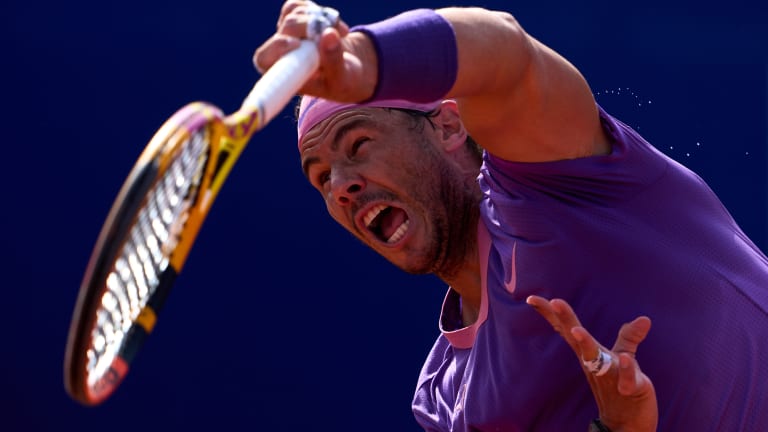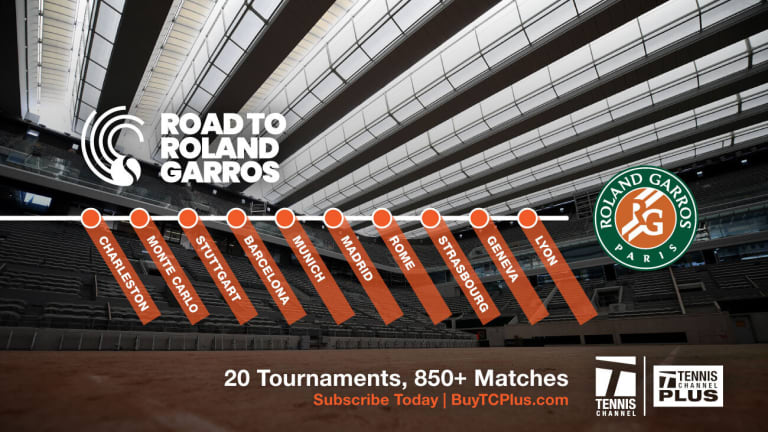Some tennis matches are memorable because they’re played at the highest pitch of quality over a sustained period of time. Others, like Rafael Nadal’s 6-4, 6-7 (6), 7-5 win over Stefanos Tsitsipas in the Barcelona final on Sunday, are memorable for the way their flaws, and the two players’ Herculean efforts to overcome them, serve to heighten the drama and highlight the struggle. Nadal-Tsitsipas was one of those imperfect storms, and it’s going to be a tough match to top during this clay season.
Over the course of three hours and 38 minutes—this was the longest best-of-three ATP contest of 2021—the tournament’s top two seeds made their share of mistakes, both physical and mental.
Nadal was broken early in each of the first two sets. He double faulted at 6-6 in the second-set tiebreaker. He failed to make passing shots he normally makes, let two match points go by in the second set, and, when he was serving for the title at 6-5 in the third, tightened up and nearly let a 30-0 lead slip. At times, it seemed as if the Rafa of today was going up against his 2015-2016 self, the one who would play brilliantly until he had to close out a match, and then fail to find the shot he needed.
At the same time, Tsitsipas was enduring his own struggles. He gave back both of those early service breaks, and was just two of 13 on break points. While he attacked relentlessly, and successfully, whenever he fell behind, he didn’t keep it up when he was ahead in a game or a set. And when he reached his own match point, at 5-4 in the third, Tsitsipas let Rafa back into a rally that he seemed to have well in hand. During that point, one of Nadal’s backhands grazed the net cord as it went over, but it was a Tsitsipas backhand that finally landed in the net.
These hesitations and signs of nerves were understandable from each player.
Nadal was trying to win a mind-boggling 12th title in Barcelona, and his first since 2018. He’s still the king of clay, but outside of Roland Garros he hasn’t been as dominant on the surface as he once was; this was only his second win in a run-up event to the French Open since the start of 2019. Rafa, who will turn 35 in June, was also trying to beat a player 12 years his junior, one who was coming off his biggest title in Monte Carlo, and who had worn him down over the course of five set at the Australian Open in February. This time, though, Nadal showed no signs of fatigue, and he worked as diligently and passionately to find a way to win as he had when he was a teenager.

